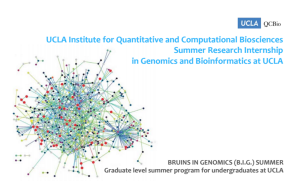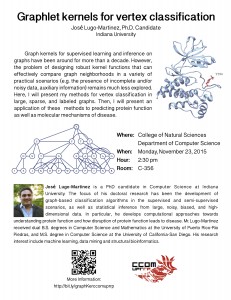The Increasing Diversity in Interdisciplinary Big Data to Knowledge (IDI-BD2K) Program at the University of Puerto Rico is pleased to announce a workshop on Big Data causal discovery.
Wednesday Feb 17, 2016
A. Introduction. Presentations from the Center for Causal Discovery of the University of Pittsburgh and from the UPR IDI-BD2K participant faculty. Dr. Gregory Cooper and Dr. Richard Scheines from the University of Pittsburgh and several faculty members from UPR (and other participating institutions) will briefly present their ongoing projects. These presentations are aimed at introducing students and faculty to Big Data Projects in Causal Discovery as applied to biomedical problems and at establishing collaborations between the BD2K participants and U. Pittsburgh
Wed 17 Feb, 2016
8:30 – 11:00 am
NCN A-211
Natural Sciences
Rio Piedras Campus
University of Puerto Rico
B. STUDENT RECRUITMENT for Big Data Summer Research Experiences. Drs Joseph Ayoob and David Boone will be presenting information on opportunities for training of students in Big Data, particularly in summer programs for undergraduate students at the University of Pittsburgh.
Wed Feb 17, 2016
11:30 am – 12:30 pm
NCN-A-211
Natural Sciences
Rio Piedras Campus
University of Puerto Rico
C. HANDS ON WORKSHOP
Causal Discovery from Biomedical Data
Dr. Richard Scheines
University of Pittsburgh
Limited to 30 participants. Those interested must register by writing to: jegarcia@hpcf.upr.edu
Wed February 17, 2016
1:00-3:00 pm
Julio Garcia Diaz building, room 123
Rio Piedras Campus
University of Puerto Rico

